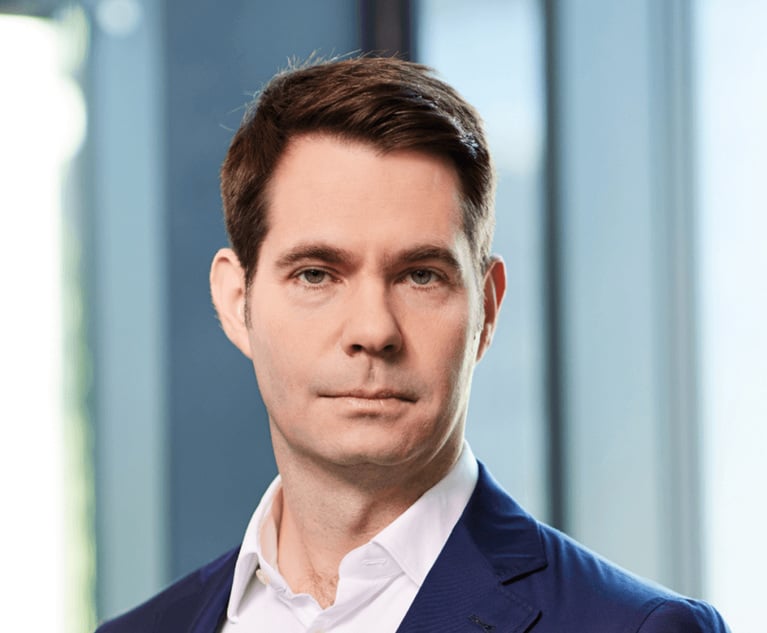Why firms can no longer ignore culture if they want to stay competitive
Jomati consultant Jenny Jones on why culture and values can offer strategic advantages to law firms
July 19, 2018 at 08:45 AM
5 minute read
Sitting in a packed lecture hall at London Business School 15 years ago, I heard a talk that transformed how I think about management. Professor Sumantra Ghoshal, one of the world's most influential thinkers on management, explained why the role of top managers needed to change. The session was about moving 'Beyond Strategy, Structure and Systems to Purpose, Processes and People'. It made perfect sense.
Traditionally, organisations benefited from having a strategy and a structure supported by systems. This management system minimises the idiosyncrasies of human behaviour with people performing roles. If one person leaves, another can pick up the work.
But technology, competition and rapid market changes mean this doesn't work as well anymore. The bigger an organisation, the more formulaic the strategy becomes.
That's not to say you don't need a strategy. But as Professor Ghoshal and his co-author Christopher A. Bartlett wrote 25 years ago in their seminal Harvard Business School article 'Changing the Roles of Top Management: Beyond Strategy to Purpose', senior management must look beyond carefully-written strategies to what's happening on the ground.
The scarcest corporate resource is not money, but the knowledge and expertise on their frontline. The success of big organisations in continually reinventing themselves is now less focused on following a clear strategic plan and more on building a rich, engaging purpose.
Today, law firms are waking up to the need to identify their purpose. If they are to attract and retain the best people, they need to offer not just a competitive salary and bonus. They increasingly face pressure: from millennials wanting to know what an organisation's purpose is, to employees moving between firms more frequently.
There's an opportunity for firms to make it easier for millennials to choose them, by providing an environment where they can learn and develop. Millennials want a strong culture that aligns with their needs and aspirations. Firms need to understand what motivates them, and respond accordingly to keep them from looking elsewhere.
They need to shift from 'I' to 'we'. This means moving away from self-interest to recognising the interests of stakeholders and of global society. To achieve greater sustainable performance, firms must actively manage culture.
Actions and behaviour drive culture, and values drive behaviours. Values give essential guidance when employees are faced with difficult decisions. It is proven that value-driven, purposeful organisations achieve greater sustainable performance. These values engage employees and can give the organisation's objectives personal meaning to them.
Many firms have embraced the idea of values, if not always put them into practice. Most do it for external branding and to drive staff behaviour. But not all can bring values to life, so the employees 'live them' day to day. There are many 'values cynics', who see values as just concepts that are not converted into behaviour. It doesn't help that staff are often told what their firm's values are without consultation. While some firms refresh their values, others just get parked.
After an organisation has chosen its values – and assuming that they are the right ones – the big question is how to bring them to life. A staff engagement survey may be a good starting point for managing culture and usually provides interesting information. But there's no certain correlation to actual performance metrics. There is no evidence to support what tends to be a subjective assessment.
Managing culture is usually left to 'gut feel'. But it doesn't have to be. There are analytics around values, which can help ascertain current and desired cultures for firms. They can identify causes of desired (and undesired) behaviours and recognise unleashed potential and possible blindspots holding people back. Analytics can correlate to actual performance metrics, providing evidence to support the findings.
Obtaining culture analytics involves all employees, is quick and affordable. It gives credence to the values and brings interest and engagement from the employees in initiatives that follow. It takes culture from HR into the business and enables a firm to align its purpose, people, values and processes. I know of one firm that has had so much take-up using this approach that it has had to limit employee participation in the initiatives it led to.
Culture has always been vital to performance, but with our rapidly changing world and changed expectations from individuals and society, it can no longer be ignored as part of purposeful, sustainable performance. Culture will be the new capital competitive frontier and there are innovative ways to manage it.
An organisation with great values but no purpose has no point. As Professor Ghoshal and Bartlett wrote all those years ago, the aim is "to convert contractual employees of an economic entity into committed members of a purposeful organisation". Fifteen years after the speech at LBS, the words are as relevant as ever.
NOT FOR REPRINT
© 2025 ALM Global, LLC, All Rights Reserved. Request academic re-use from www.copyright.com. All other uses, submit a request to [email protected]. For more information visit Asset & Logo Licensing.
You Might Like
View All
Top Labor Lawyer and Former Germany Managing Partner Leaves A&O Shearman to Found Boutique Firm
3 minute read
Noerr’s Former Polish Office Merges With Big Professional Services Firm Eying German-Speaking Clients
3 minute read
US-Based Smith, Gambrell & Russell Expands to Italy With Cross-Border Transactional Attorneys
3 minute readTrending Stories
Who Got The Work
J. Brugh Lower of Gibbons has entered an appearance for industrial equipment supplier Devco Corporation in a pending trademark infringement lawsuit. The suit, accusing the defendant of selling knock-off Graco products, was filed Dec. 18 in New Jersey District Court by Rivkin Radler on behalf of Graco Inc. and Graco Minnesota. The case, assigned to U.S. District Judge Zahid N. Quraishi, is 3:24-cv-11294, Graco Inc. et al v. Devco Corporation.
Who Got The Work
Rebecca Maller-Stein and Kent A. Yalowitz of Arnold & Porter Kaye Scholer have entered their appearances for Hanaco Venture Capital and its executives, Lior Prosor and David Frankel, in a pending securities lawsuit. The action, filed on Dec. 24 in New York Southern District Court by Zell, Aron & Co. on behalf of Goldeneye Advisors, accuses the defendants of negligently and fraudulently managing the plaintiff's $1 million investment. The case, assigned to U.S. District Judge Vernon S. Broderick, is 1:24-cv-09918, Goldeneye Advisors, LLC v. Hanaco Venture Capital, Ltd. et al.
Who Got The Work
Attorneys from A&O Shearman has stepped in as defense counsel for Toronto-Dominion Bank and other defendants in a pending securities class action. The suit, filed Dec. 11 in New York Southern District Court by Bleichmar Fonti & Auld, accuses the defendants of concealing the bank's 'pervasive' deficiencies in regards to its compliance with the Bank Secrecy Act and the quality of its anti-money laundering controls. The case, assigned to U.S. District Judge Arun Subramanian, is 1:24-cv-09445, Gonzalez v. The Toronto-Dominion Bank et al.
Who Got The Work
Crown Castle International, a Pennsylvania company providing shared communications infrastructure, has turned to Luke D. Wolf of Gordon Rees Scully Mansukhani to fend off a pending breach-of-contract lawsuit. The court action, filed Nov. 25 in Michigan Eastern District Court by Hooper Hathaway PC on behalf of The Town Residences LLC, accuses Crown Castle of failing to transfer approximately $30,000 in utility payments from T-Mobile in breach of a roof-top lease and assignment agreement. The case, assigned to U.S. District Judge Susan K. Declercq, is 2:24-cv-13131, The Town Residences LLC v. T-Mobile US, Inc. et al.
Who Got The Work
Wilfred P. Coronato and Daniel M. Schwartz of McCarter & English have stepped in as defense counsel to Electrolux Home Products Inc. in a pending product liability lawsuit. The court action, filed Nov. 26 in New York Eastern District Court by Poulos Lopiccolo PC and Nagel Rice LLP on behalf of David Stern, alleges that the defendant's refrigerators’ drawers and shelving repeatedly break and fall apart within months after purchase. The case, assigned to U.S. District Judge Joan M. Azrack, is 2:24-cv-08204, Stern v. Electrolux Home Products, Inc.
Featured Firms
Law Offices of Gary Martin Hays & Associates, P.C.
(470) 294-1674
Law Offices of Mark E. Salomone
(857) 444-6468
Smith & Hassler
(713) 739-1250










